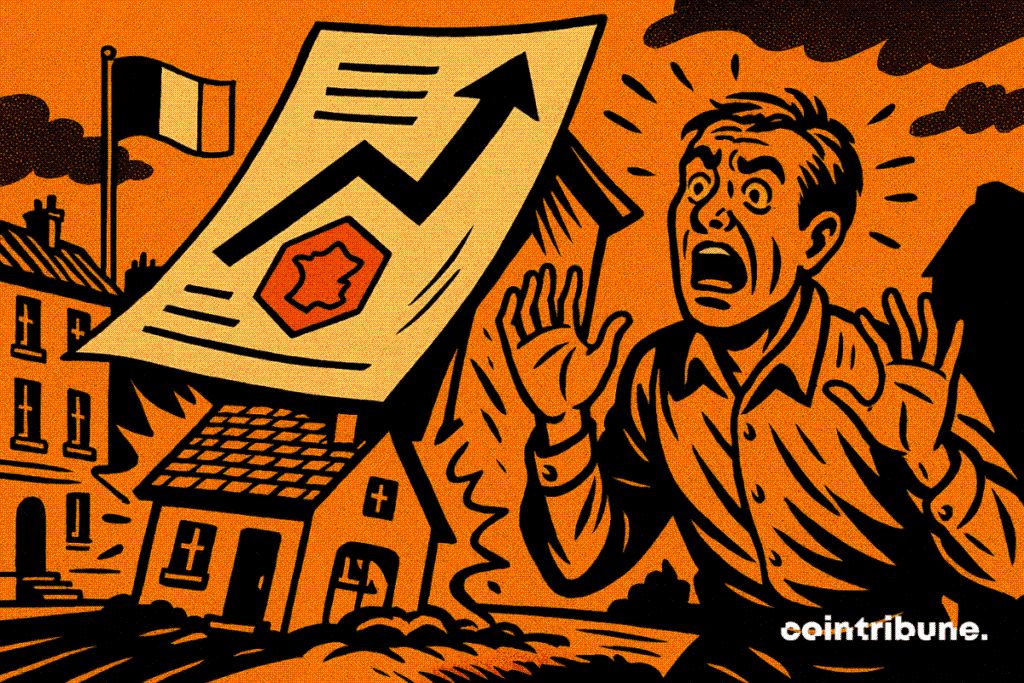Rising Property Tax Shakes French Towns
While inflation slows on a national scale, property owners do not escape the reality of the figures. Since August 25, the first property tax notices have arrived, with a national increase set at 1.7 %. Indeed, behind this mechanical revaluation, much higher local increases are quietly added. This tax burden, far from being insignificant, reveals growing tensions between budget-pressured local authorities and already weakened taxpayers.

In brief
- The 2025 property tax notices have arrived since August 25, with a minimum increase of 1.7 % linked to inflation.
- This national increase hides strong local disparities, some municipalities going up to +8 %.
- In Ploërmel, some owners see their bill exceed 1,500 €, causing anger and misunderstanding.
- The increases are often justified by heavy municipal investments, such as network renovation or school construction.
An inflation mechanism under surveillance
Since this Monday, August 25, the first property tax notices are being distributed to French owners. On the surface, the national increase remains contained: +1.7 %, according to the inflation-linked indexation mechanism.
An automatic increase and inevitable, as reminds Henry Buzy-Cazaux, member of the National Housing Council : “1.7 % is the minimum increase the property tax will show”.
However, behind this seemingly moderate progress, tensions remain high among taxpayers. On average, property tax has already increased by 30 % in ten years. For many, this tax now stands as one of the heaviest items in wealth taxation.
Here are the concrete facts known to date about this increase :
- A minimum national increase of 1.7 %, applying inflation indexation ;
- The comparison with previous years : +7 % in 2023, +4 % in 2024 ;
- The average amount paid by owners in 2024: 1,080 euros;
- Payment deadline set for October 15 (October 20 online) ;
- Possible variations depending on municipalities: municipal councils in France can vote additional rate increases ;
- The political framework : in the pre-election period, mayors are encouraged to contain increases. “5 % is the maximum acceptability by local taxpayers,” according to Buzy-Cazaux.
These national data reveal only part of the reality. In some municipalities in France, increases are well above these averages, but their causes follow a different logic.
Local trade-offs, tight budgets, and fiscal fractures
In Ploërmel, in Morbihan, the reality far exceeds the acceptability threshold mentioned by experts. Property tax there climbs by 8 % this year. For some residents, the pill is hard to swallow. For a 100 square meter apartment, property tax must be over 1,500 euros.
A massive investment program initiated by the municipality is at the origin of this local increase. The mayor justifies the 11 million euros committed, of which 8 million for the city center, by needs considered essential, notably the complete overhaul of the sanitation system and the construction of a new school.
For some residents, these works are necessary. For others, they reflect disconnected budget management.
Facing this growing tax pressure, some owners or savers turn to more mobile patrimonial alternatives less exposed to local decisions, such as cryptos. Bitcoin, for example, attracts by its decentralized nature and its resistance to monetary and fiscal inflation in France. In an environment where traditional taxes weigh heavier, this digital reserve appears for many as a counterweight, even a refuge.
Behind these choices, an entire financial structure is shaking. More and more municipalities denounce the disengagement of the State. This increasing pressure on local budgets pushes elected officials to use the fiscal lever to compensate. A situation that risks amplifying tensions between local governments and citizens, and making even more urgent a reform of local taxation, like the difficult economic measures proposed by Bayrou . Without a systemic solution, the fiscal fracture could well become a political fracture at the territorial level.